00:00
Home / Her Work / Song Catalogue / Poor Sad Love
Poor sad love who weeps all day,
what is it ails you, why won’t you say?
Sneak to the window and pretend
it’s your marjoram that you tend.
[Come to the window and see
my heart’s blood as it spills for thee.]
Oh, aman, I did not know,
and oh, yarem,* I won’t tell a soul,
but not a moment passes by,
yarem oh yarem, without a sigh.
Translated by Michael Eleftheriou
*yarem: a Turkish exclamation common in amanedes and slow songs
Παραπονιάρικό μου, τι έχεις κι όλο κλαις
και το παράπονό σου σε μένα δεν το λες;
Έβγα στο παραθύρι κρυφ’ απ’ τη μάνα σου
και κάνε πως ποτίζεις τη μαντζουράνα σου.
[Έβγα στο παραθύρι να δεις τι γίνεται,
το αίμα της καρδιάς μου για σένα χύνεται.]
Αχ, αμάν, αυτό το αχ δεν το ’ξερα -αχ, γιαρέμ,* κι αμάν, αμάν- ποτέ να το φωνάξω
και τώρα δεν περνάει στιγμή -αχ- να μην αναστενάξω -γιαρέμ, αχ, γιαρέμ.
*γιαρέμ: σύνηθες τουρκικό επιφώνημα σε αμανέδες και αργά τραγούδια
A love song, one of those that reminds us of the close relationship between folk songs and rebetika.
At the end, the melody turns into an amanes,* with a couplet expressing erotic passion with the intense emotionality common to many songs in this genre. These couplets were also common in a host of Greek communities on the Asia Minor seaboard and on the islands, where they were sung to various melodies.
So it’s not surprising that both Mytilene and Smyrna claim the song as their own, given the close links between Smyrna and Lesvos, whose inhabitants would flock to the mainland city in their thousands until 1922, to work as craftsmen or labourers, to study, some even to shop in Smyrna’s marketplace or to settle there permanently. And it’s only natural that they should have taken their songs, music and dances —indeed, cultural and material goods of every sort— with them. Which explains the enormous influence Smyrna had culturally not only on Lesvos, but on almost every island in the Aegean.
Theodor Kondaras (2022)
*amanes (pl. amanedes): a slow melancholy song in the oriental style
Live recording from the concert Songs of Asia Minor with Domna Samiou, held on 8 March 2005 at the Megaron —
the Athens Concert Hall. Based on Domna Samiou’s field recording of the song, made in August 1965 in the village of Skoutaros on Lesvos, sung by Diamando Anagnostou and Eleni Chondronikola.
Diamando Anagnostou, Eleni Chondronikola. Lesvos, 1965
© Domna Samiou Archive
Later, in 1980, the Smyrniot musician Nikos Sofroniou, brother of the singer Vangelis Sofroniou, taught the song to her.
Nikos Sofroniou. Athens, 1980
© Domna Samiou Archive

Singers
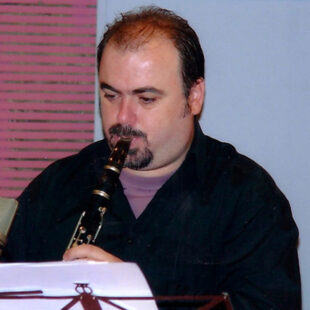
Clarinet
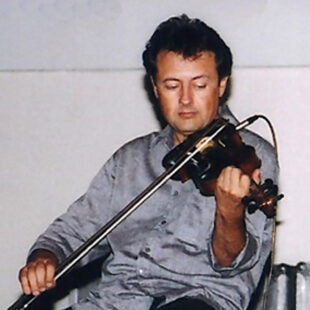
Violin
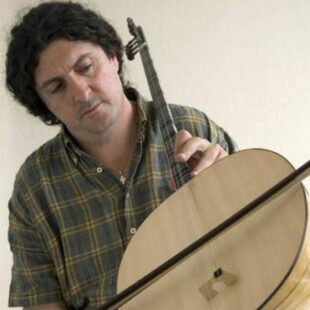
Bowed tambouras

Constantinopolitan lute
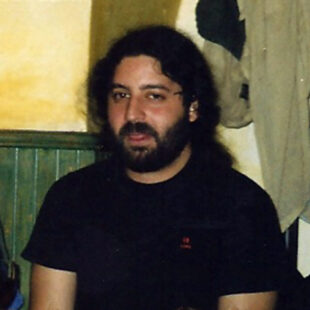
Lute
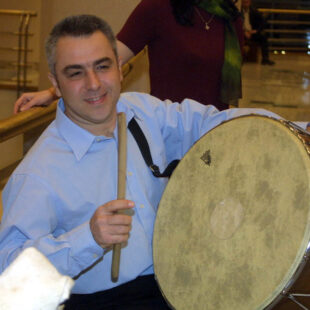
Goblet drum

Bendir (frame drum)